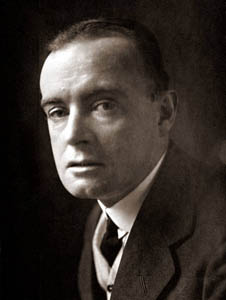An essay by G. K. Chesterton, as collected in All I Survey, reproduced here in honour of St. George’s Day.
The disadvantage of men not knowing the past is that they do not know the present. History is a hill or high point of vantage, from which alone men see the town in which they live or the age in which they are living. Without some such contrast or comparison, without some such shifting of the point of view, we should see nothing whatever of our own social surroundings. We should take them for granted, as the only possible social surroundings. We should be as unconscious of them as we are, for the most part, of the hair growing on our heads or the air passing through our lungs. It is the variety of the human story that brings out sharply the last turn that the road has taken, and it is the view under the arch of the gateway which tells us that we are entering a town.
Yet this sense of the past is curiously patchy among the most intelligent and instructed people, especially in modern England. Among a hundred such scraps and snippets, I saw this morning a literary competition in an exceedingly highbrow weekly, a prize being awarded for a conversation between a modern interviewer and St. George. And I was struck by the fact that clever, and even brilliant, contributors missed much of the point, even about the modern interviewer, by missing the point about the ancient saint. [Read more…]









Recent Comments